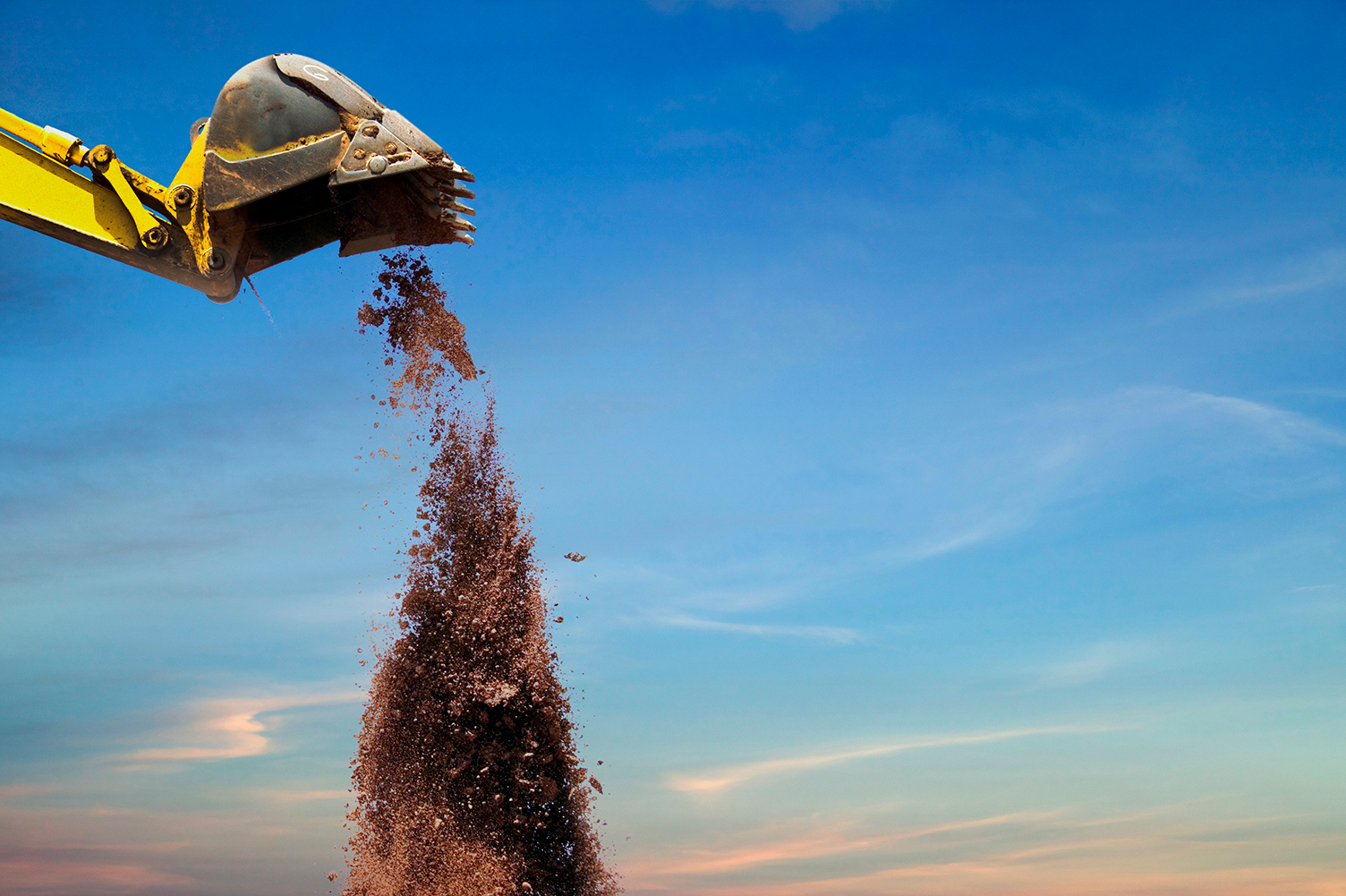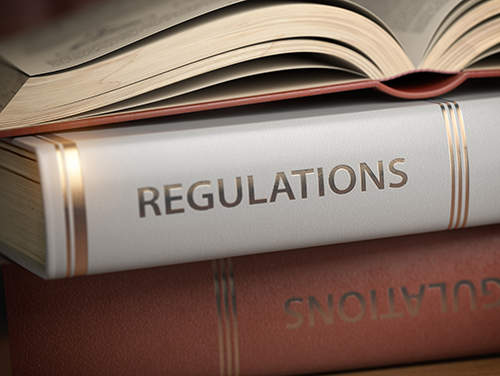Guard Your Backyard
A guide for local leaders, businesses and homeowners to understand soil and fill requirements, protect against illegal dumping and protect residents against receiving tainted materials.
Soils or fill materials are routinely trucked to sites being developed throughout the state as well as to established residential sites. Clean soil is fine, but sometimes soil or fill material which is sold or offered free of charge - advertised as “free clean fill” - may contain debris or contaminants that should not be on residential property.
How to stop illegal fill dumping? Effective action begins at the municipal level, where local governments can take steps to prevent the problem by enacting a municipal soil and fill ordinance. This type of ordinance gives a municipality authority over soil brought into and placed on construction, development and residential properties within municipal boundaries.
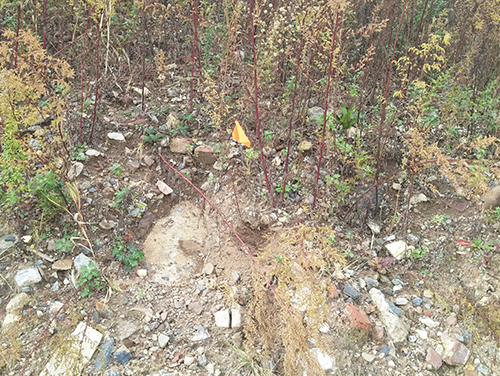
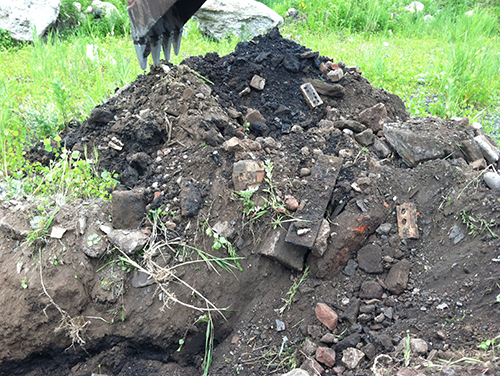
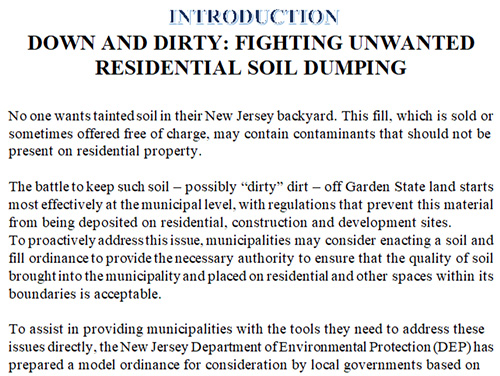
Did you know?
It takes a minimum of 500 years to form one inch of topsoil.
Source: audubon.org
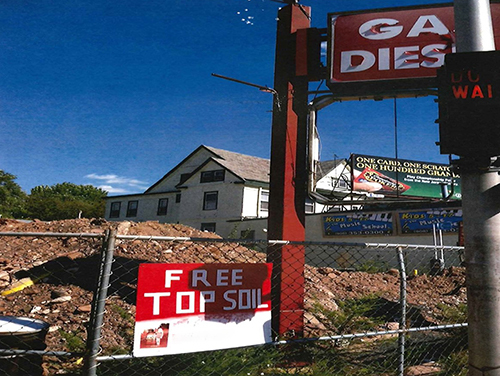
Protect Your Community
New Jersey’s local governments can adopt a municipal soil and fill ordinance to prevent dumping of unacceptable fill.
Protect Your Community
The battle to keep tainted soil out of New Jersey starts most effectively at the municipal level.
You Have the Power
This model ordinance can help municipal leadership get started. The ordinance is based on existing soil and fill ordinances in place throughout the state. Municipalities can modify and adapt the model ordinance, as necessary and appropriate, to fit their needs.
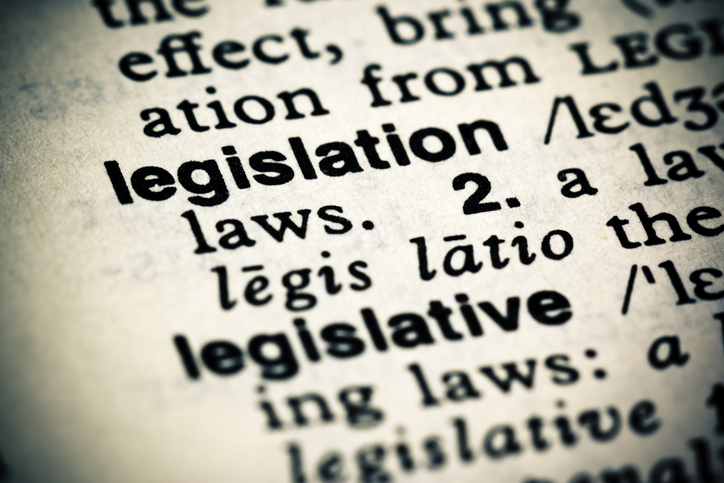
Examples of Municipal Laws at Work
In Wantage, township officials approved an ordinance in May 2019 requiring anyone receiving more than 25 cubic yards of soil in a calendar year to obtain a soil importing permit. View the ordinance.
The Frankford Township Committee in April 2019 adopted an ordinance that requires a permit to allow the placement of soil from outside the township on local land. View the ordinance.
Officials in Lafayette in May 2019 approved a measure requiring that a permit be secured before disturbing the soil “… by soil removal, soil importation or cut and fill operations on any premises in the Township.” View the ordinance.
In Hampton, the Township Committee also approved a permit requirement for importation of soils. View the ordinance.
In November 2019, Plumsted Township approved a soil importation ordinance No. 2019-11 in the Zoning chapter of their Land Use Legislation following news releases, in August of that year, related to State enforcement action against an unlawful solid waste disposal operation in the town. View the ordinance.
The Township Council of Jackson approved Ordinance 04-20 in April 2020 to add Chapter 364 “Soil/Fill Importation Permit” to the Township code thereby creating regulations modeled on the NJDEP ordinance. View the ordinance.
Soil and Fill Specifics

These advisory materials from the DEP can offer specifics on state directives.
A Team Effort
What the New Jersey Department of Environmental Protection Can Do
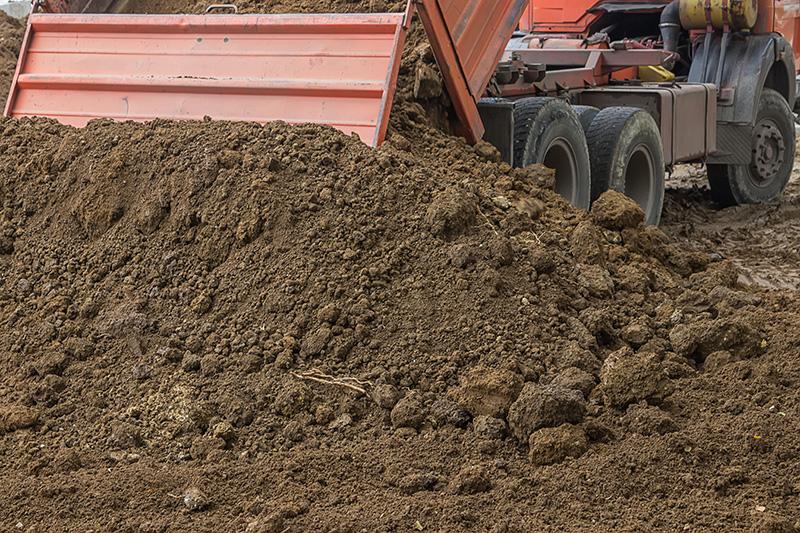
The DEP is providing specifics on how municipalities can coordinate with the department, as well as other agencies; and promotes best practices.
- Reach out to municipal leaders
- Share a model ordinance for municipalities to adopt regulating the deposit of soil and fill materials
- Educate in-state and out-of-state business concerns – including developers, contractors, haulers and landscapers – involved in generating, storing and transporting of soil and fill materials regarding New Jersey’s rules and regulations
- Promote best practices at regulated facilities and among related industry groups and associations
- Develop and maintain advisory materials
When soil/fill material is determined to be solid waste through visual/olfactory evidence or sampling analytics – showing contaminant[s] exist above DEP remediation standards:
- In addition to taking any steps provided for in municipal regulations that apply to a site with such fill, the DEP should be contacted to investigate and initiate enforcement action pursuant to Solid Waste Rules (N.J.A.C. 7:26-1 et. seq.)
- The site is at risk for enforcement and penalties pursuant to established municipal ordinances and, potentially, state laws and regulations
Any fill material determined to contain Resource Conservation and Recovery Act hazardous waste must be reported to – and falls under – the DEP’s authority for control and enforcement.
Contact Us
- For incidents, to report dumping or immediate environmental concerns, call
1-877-WARN-DEP (1-877-927-6337) or the DEP mobile app at WARN NJDEP - For general information, contact the Bureau of Solid Waste Compliance and Enforcement at 609-292-6305
- For information regarding the beneficial use and/or other approvals of restricted-use fill, contact the Division of Sustainable Waste Management at 609-633-1418
What N.J. Municipalities Can Do
Ending municipal dumping of unclean soil begins with local government.
- Enact a municipal ordinance to regulate soil and fill
- Monitor dump truck activity and traffic (i.e., monitoring and enforcing traffic/motor vehicle laws)
- Request documentation that the business is operating in compliance with New Jersey’s Law regulating soil and fill recycling services.
- Educate municipal business concerns – including developers, contractors, haulers and landscapers – involved in generating, storing and transporting soil and fill materials about local soil ordinances
What Industry Leaders/Companies Can Do
There are steps that companies, seeking to carry soil into New Jersey municipalities, can take.
- Perform or obtain analytical testing results for soil and fill material under their management
- Maintain site information records for the property that is the source of soil/fill material being used or transported
- Contact local authorities to inquire about and ensure compliance with local requirements
- Any business entity involved in soil and fill recycling services must have an A-901 license, an NJDEP Soil and Fill Recycling Registration, or Entities certifying for Non-Restricted Soil and Fill Recyclable Materials
What N.J. Residents Can Do
Notice a pile of dirt and debris on property near your home or another spot in your town? See loaded dump trucks repeatedly visiting secluded locations?
Here’s who to contact:
- Municipal zoning or construction offices
- County soil conservation districts
- County health department
- New Jersey Department of Environmental Protection hotline at 1-877-WARN-DEP (1-877-927-6337), for environmental emergencies
- DEP mobile app at WARN NJDEP, for environmental non-emergencies
Receiving soil/fill from a contractor or landscaper?
- Request information on the origin of the material, as well as assurances, such as analytical testing results, demonstrating that it is not contaminated above established residential soil remediation standards
- Ensure all local codes and ordinances are met prior to accepting the material
- Request documentation that the business is operating in compliance with New Jersey’s Law regulating soil and fill recycling services. The documentation may be verified by accessing the following DEP lists for businesses that are licensed, registered or certified for non-restricted soil and fill material. Note: The lists below do not indicate Department approval and should not be considered or used to make any determinations regarding the quality of the soil and fill recyclable material.
 OFFICIAL SITE OF THE STATE OF NEW JERSEY
OFFICIAL SITE OF THE STATE OF NEW JERSEY